Have you ever seen the fish in below pictures?
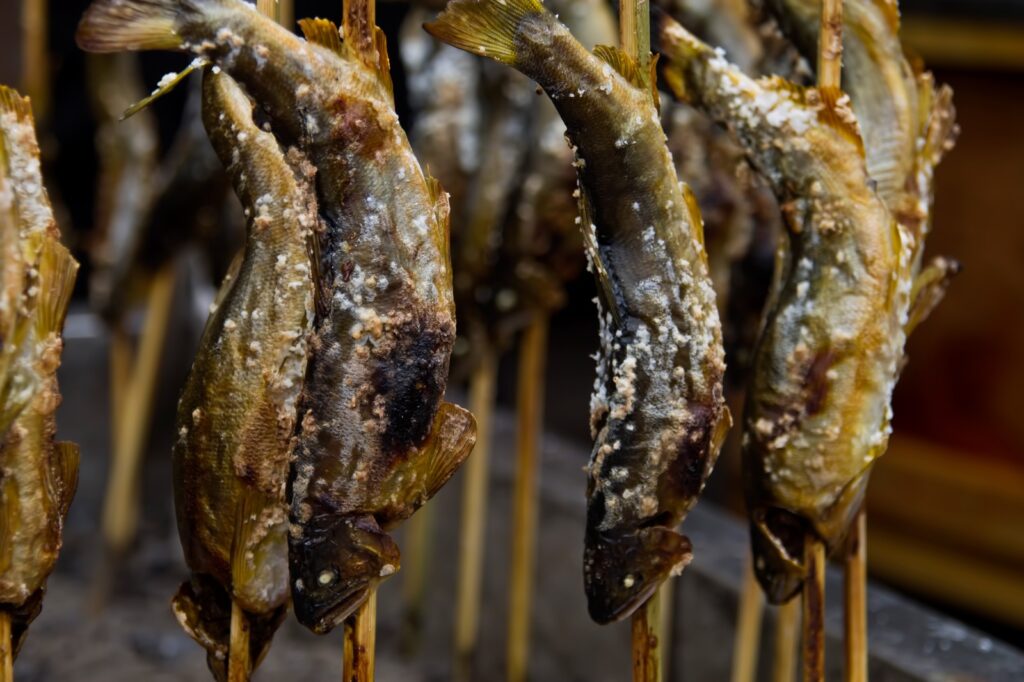
This is Ayu in Japanese and Sweetfish in English.
It is one of the most popular freshwater fish in Japan but foreign people don’t know about it so much.
Then, I’d like to tell you how special it is since my current place Maze is the best place to fish and eat it.
Long history of Ayu in Japan as word origin says
I like investigating any history like origin of a word.
Ayu actually has a log history with Japanese people.
Why is it called “Sweetfish”
Before telling you about the word history of Ayu, I’d like to talk about English name; Sweetfish.
It literally has a special flavor like a fruit.
I don’t know exactly, but some people say it smells like a watermelon.
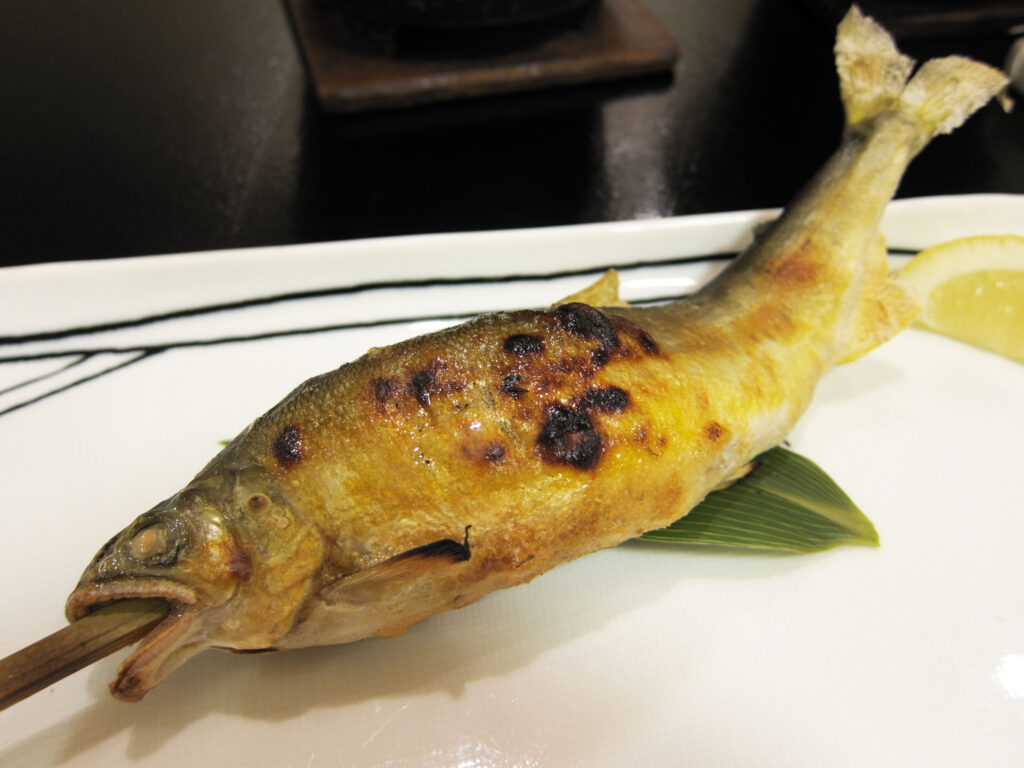
How can you imagine there is a fish whose flavor is like a fruit? Actually, it is in Japan.
Word origin of Ayu
Now, let’s get into the main topic.
Kanji of Ayu is “鮎”.
This kanji is composed of 2 kanjis; 魚 and 占, right?
魚 means “fish”, and 占 means “divination”.
Now you know Ayu is fish that might be used for divination.
Actually, Chronicles of Japan (Nihonshoki) says Empress Jingu divined victory or defeat of the Korean Peninsula by fishing Ayu 2,000 years ago.
She tried to read it something like they would win the war if they could fish Ayu.
So, Ayu seemed to be a tool for divination a long time ago.
Now you can understand how long history Ayu has in Japan.
Ayu resides only in extremely clean river
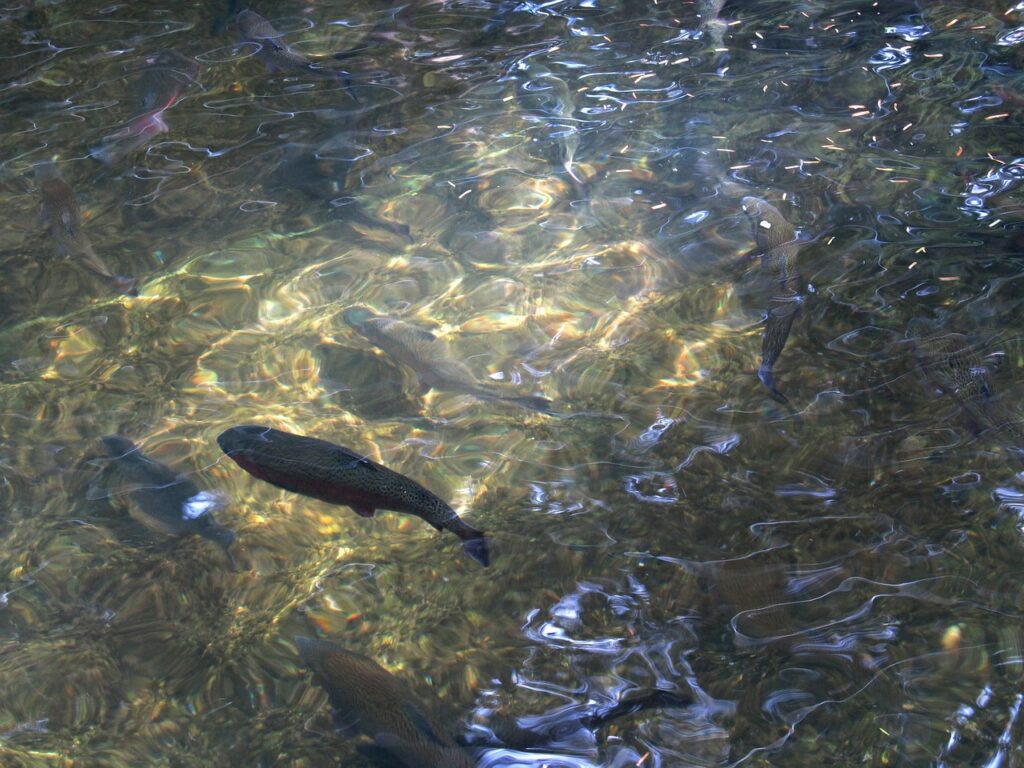
Ayu doesn’t exist in an ordinary river.
It’s related to their food.
Ayu grows up on moss
Another unique point of Ayu is food.
It doesn’t eat worms or small insects, on behalf, it has moss.
Ayu is one of anadromous fish so it’s born in a river and grows up in the ocean and comes back to its native river again.
When it’s young, it has microbes in ocean but after that it has only moss or alga.
The key point is that those food only grows in transparent rivers.
That’s why it lives only in extremely clean rivers.
Only Japan has abundant Ayu in the world
So, where can we find those kind of clean rivers which Ayu can grow up?
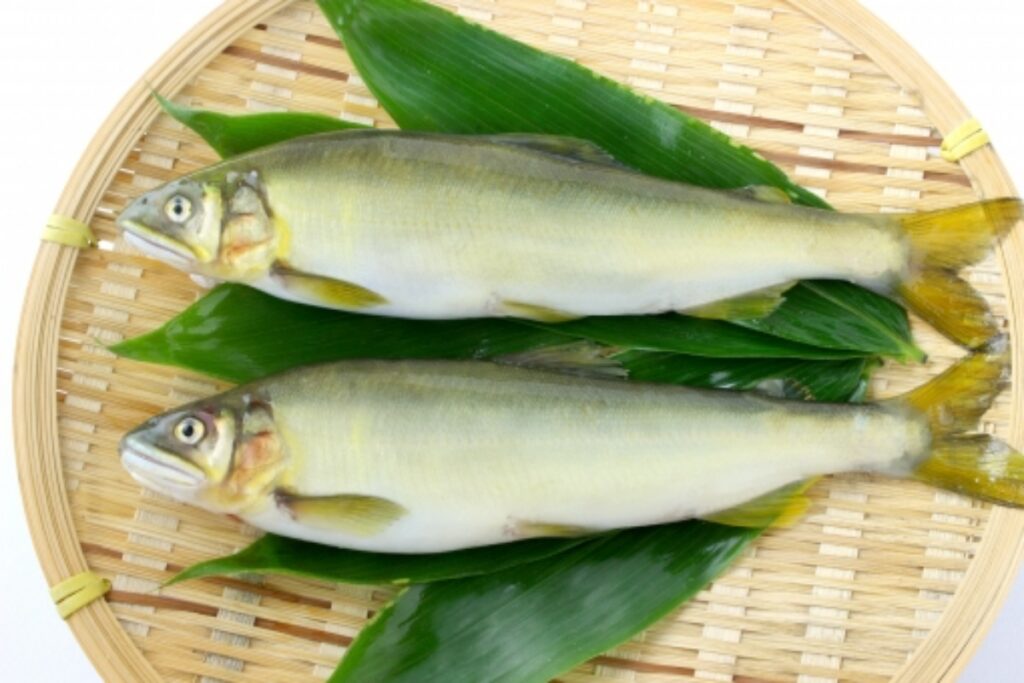
Originally, ayu lives in the East Asia; from Hokkaido and the Korean Peninsula to the northern Vietnam.
As I said, Ayu inhabits only transparent rivers that have enough moss for it to grow up.
It likes not wide range rivers but sharp and narrow rivers like ones through a mountain in Japan.
Nowadays, environment pollution in China is really serious, which causes decreasing number of Ayu.
It is listed on endangered species in Taiwan.
Though some rivers in Japan are polluted, we still have transparent rivers in Gifu and Kochi like Maze river.
So, Japan is the only one place in the world that has abundant Ayu.
Difference between natural and released Ayu
Japanese Ayu are categorized into 2 types, which are natural and released ones.
How grown up
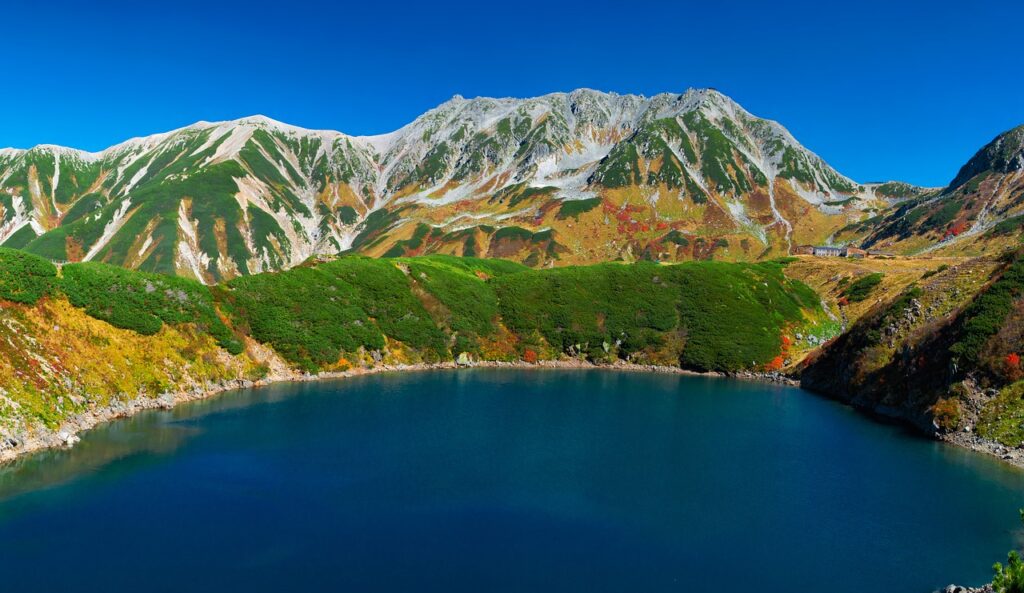
Natural Ayu is born in a river, goes down to ocean and naturally comes back to the native river.
Released one is also born in a river, caught at the mouth of the river and stocked into other rivers.
Actually, most of Ayu in Japan are released ones. Only a few natural Ayu can be found even in Japan.
The most popular released one is from Biwa lake.
Flavor and Taste
Natural Ayu is more fragrant than released one.
Though, the latter one has more fat and nutrition.
I’ve ever had released one so I’m really looking forward to eating natural one here in Maze.
Just to tell you, Ayu is a special fish in terms of serving too.
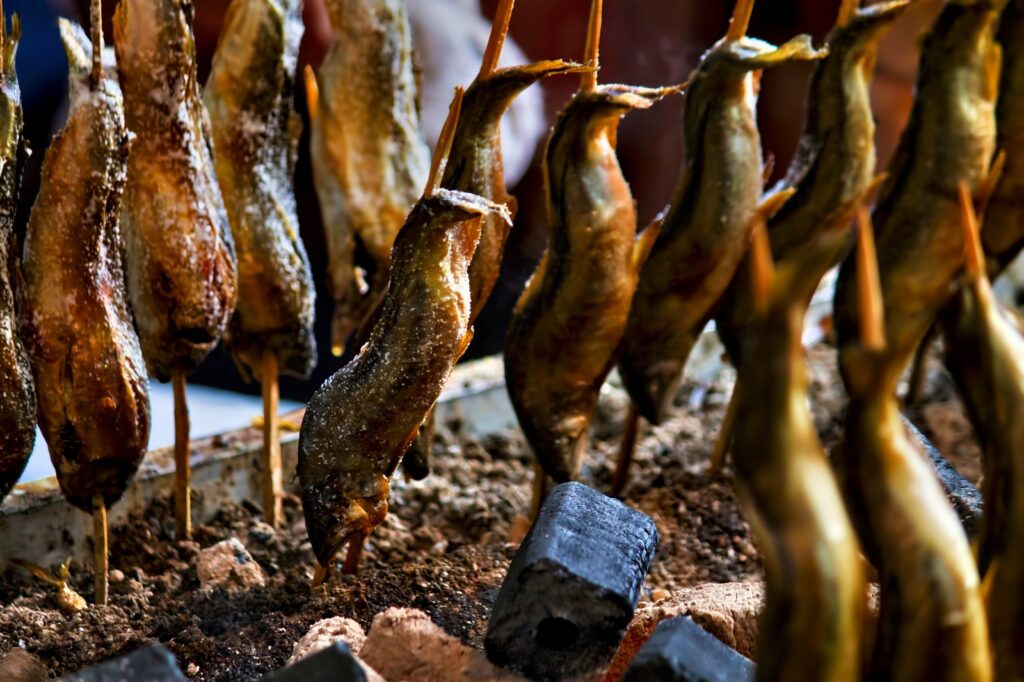
The most valuable way to cook fish in Japan is Sashimi (raw fish).
However, only for Ayu the best one is grilling with salt like above picture.
Summary
How do you like the post?
I’ve ever shared with you how unique and precious fish Ayu is.
You know the saying, “A picture’s worth a thousand words.”
So, come to Maze if you wanna see the fact!!
I’ll update you why Ayu in Maze river is the best in Japan later.

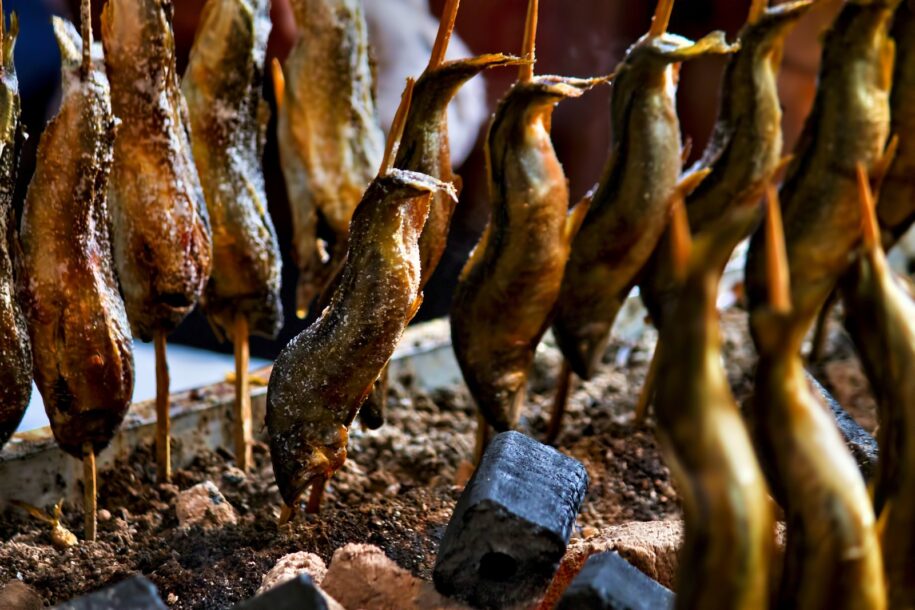
8 Comments
Tarang
Thank you! This is a very interesting article and explained very well about Ayu fish.
Keep writing, you have a good flair for it!!
UMESEKO TOUR
Hi Tarang,
Thanks for your comment. Please visit Japan and taste the special fish!
Deborah A Rebisz
Thank you for the informative article on Ayu.
UMESEKO TOUR
Hi Deborah,
Thanks for your comment. Glad to hear that you enjoyed the article. Hope you will come to Japan for Ayu fish!
Simon Rixon
Hi Umeseko Tour, thank you for your article, it answered my questions about Ayu!! Your English is very good, and far better than my Japanese!! However, if you would like me to proof read future articles, then do feel free to email me.
ありがとう
Simon.
UMESEKO TOUR
Hi Simon,
Thanks for your comment. My pleasure to offer you some knowledge about Ayu.
Robert Sickles
I watched a “chefs Table” on Netflix. The is an episode on a Japanese chef yoshihiro Amai.
He makes an Ayu trout pizza. I was curious and looked up Ayu trout. I came across your article. Very interesting! I had never heard of Ayu trout. They sound delicious.
Thank-you
UMESEKO TOUR
Hi Robert,
Thanks for your comment. I did not know the program but glad to hear that they introduced Ayu fish to the world. When you have a chance to visit Japan, hope you will taste the magical fish!